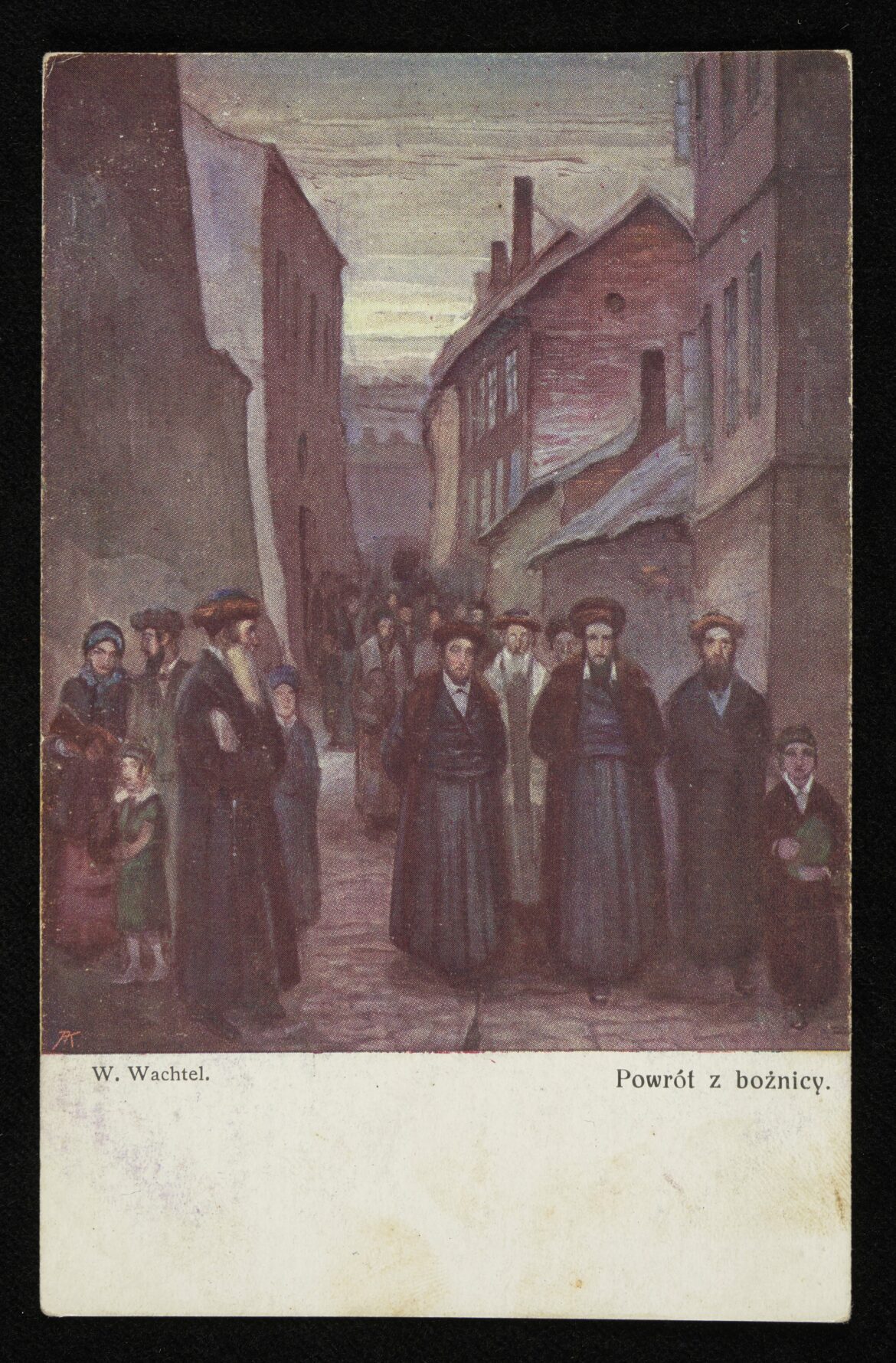The size of the Jewish population living in the territories of the Kingdom of Poland in 1815 is difficult to determine precisely. According to estimates, Jews at that time constituted about 5% of the Kingdom’s population. This share was steadily increasing, and in 1827 was already over 9% of the total population.
Most Jews belonged to the poor population and their situation was aggravated by special taxes, including the so-called recruitment, kosher and ticket taxes. The former was paid in exchange for the exemption of the Jewish population from military service, the so-called kosher tax was paid for a slaughter of kosher meat, the so-called ticket tax had to be paid by people temporarily staying in Warsaw, and a large part of them were small Jewish traders.
The authorities of the Kingdom of Poland in its autonomous period, i.e. from 1815 until the fall of the November Uprising in 1831, made attempts to combat the poverty of this group of people, among others through initiatives for the development of Jewish agriculture.
In 1818 special land was set aside for Jews, while in 1823 Jews were allowed to settle on government estates. In the following years, tax exemptions were introduced for Jewish colonists settling in villages. Thanks to the efforts of the Jews who were members of the advisory chamber at the Jewish Committee (a body set up by the Russian Tsar Alexander I, who was also the Polish king), a Society for the Support of Poor Farmers was created. Salomon Posner (1770-1848) was particularly active in the development of Jewish agriculture.
Another incentive to take up farming was to prohibit the Jewish population from alcohol trade. However, those plans were quickly abandoned.
Several years of government action did not change the occupational structure. The numerous social initiatives to improve the material situation of the Jewish population did not help either. This was partly due to the low interest of this social group in life in the countryside, and partly due to the fact that colonists were generally granted less fertile land or they were demanded to provide financial security, which the poorest families could not afford.





